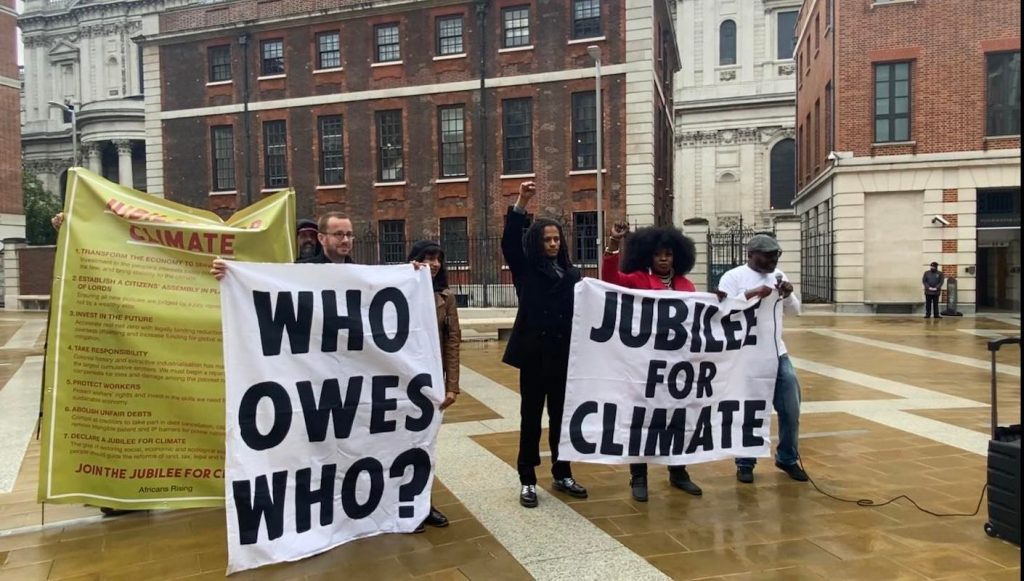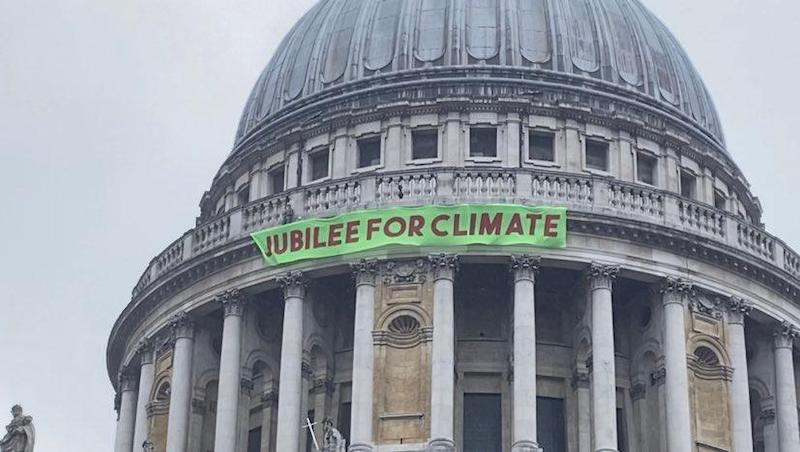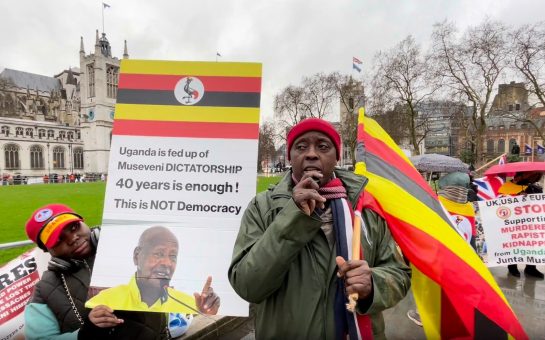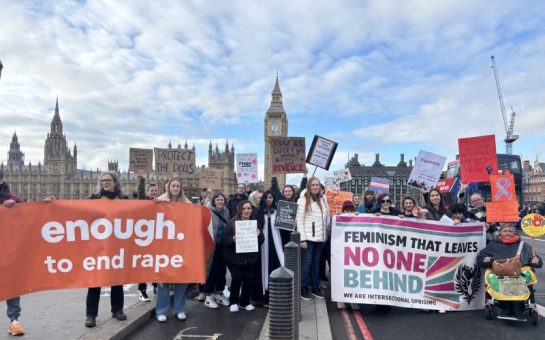Members of a Pan-African group have launched a campaign calling for the UK government to end the debt it imposes on lower-income countries.
It also demands action on climate change.
Africans Rising activists gathered on Paternoster Square on 15 October to launch their new campaign, Jubilee for Climate, which fights for an end to UK debts on developing countries, and for action on climate change.
“The issue of the climate crisis has been separated from racial and social injustices.” said activist Nick Anim.
“And uniting these is the right step towards fighting the climate emergency.” he added.
Anim said: “Jubilee for Climate as a campaign tells us that we cannot separate the issues of climate and ecological crisis that humanity face at the moment, from issues of social justice.”
Anim explained that the demonstration is important for him because of his African background and his children.
He said: “I want to leave a better world for my children who are very young, 10 and 12 – I want to leave a better world for them.
“I don’t want them to grow up in a world that is so disfigured by a horrible history and violence that they look back and say, what did daddy do to make this a better place?”
Mother and activist, Marvina Newton, who has been campaigning for racial and social justice for over 10 years, said: “If you say you are part of the environmental movement and you don’t think about Africa and indigenous people, you are part of the problem.
“It is not fair for those who use less carbon footprints, to be the ones suffering climate injustice.”

Rob Callender, a member of Africans Rising, climbed on the Stone Gallery in St Paul’s Cathedral to drop the organisation’s banner.
He said: “I am willing to risk my liberty for this – we’ve got to get action on climate change.”
Callender was one of the three individuals who appeared in the Magistrates court for climbing onto the Palace of Westminster.
There, he handed down a 70m2 letter that asked the UK government for the acknowledgement of slavery, colonisation and reparations.
Demonstrators also remembered Thomas Sankara, the former president of Burkina Faso who ruled the country from 1949 to 1987 and was murdered on 15 October that same year.
Sankara was remembered for his policies, which included campaigning for an end to foreign-imposed debts, and advocated for environmental policies.
International development worker and Pan-Africanist Nathan Bryant, said: “The reason why I am such a fan of Sankara is because he was the most upright leader.
“It seems like the more people are involved in the economies of poorer countries, the less success they have.”
“He really wanted to combat corruption and was able to accomplish so much in just 4 years.
Streatham MP, Bell Ribeiro-Addy, who joined the Jubilee for Climate virtual gathering after the demonstration said that the way to tackle the climate issue is to confront the brutal history of racism and slavery.
Ribeiro-Addy said: “In parliament, someone like me, of Ghanaian heritage, is considered to be equal to other people of Parliament.
“But how can that really be true when they refuse to apologise for the damage they caused to Ghana and other countries?
“How can I be looked at as an equal if the legacy of everything that brought me to be born in this country is not being addressed – if I am looked down upon by statues and paintings of former members of parliament just like me who used to own people just like me?”

The Head of Advocacy of the Jubilee Debt Campaign, Jerome Phelps, said that the next step is COP26.
He said: “More people are waking up to the legacy of colonialism, racism and injustice and the need to connect the two.
“We need debt justice and we need racial justice in order to save humanity from the climate emergency crisis.”
According to the UN Framework Convention on Climate Change, 80% of developing countries have started developing and carrying out their national adaptation plans against climate change.
However, 46 developing countries do not have the financial means to make substantial changes, as a study by the International Institute for Environment and Development (IIED) revealed.
Haiti, Yemen, the Philippines and the Caribbean are among the countries which are most likely to disappear if climate change is not tackled promptly.




